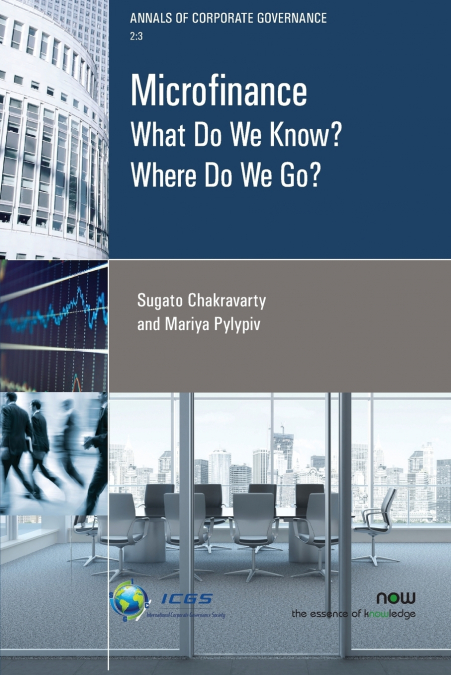
Mariya Pylypiv / Sugato Chakravarty
Microfinance: What Do We Know? Where Do We Go? examines micro lending, which has become a global phenomenon where small unsecured loans are made to the poorest people usually in groups so that the borrowers can invest the money in some business or related entrepreneurial venture and improve their social and economic conditions. The practice was first conceived of and operationalized by Mohammed Yunus in the villages of Bangladesh in the late seventies. Since those humble beginnings, microfinance has come a long way with almost every country around the world has some form of a microlending program usually targeted toward the very poor and there are thousands of microfinance institutions (MFIs) that are engaged in such loan making. Since inception, hundreds of articles have been written examining almost every aspect underlying these loans and how it may, or may not, impact loan repayment rates which is an important, but not the ultimate, measure of success of the Program itself. Through theoretical, empirical and experimental research, we have improved our understanding of how and why certain aspects of group and, more recently, individual lending frameworks work.There is little doubt that the revolution in microfinance lending has revolutionized how we think about lending and, in particular, lending to the poorest of the poor with no collateral to pledge. There is also no doubt that the micro lending movement has been an overall success globally. However, there are increasingly emerging signs that all might not be well with the micro lending industry. The problems are not unlike that facing any rapidly growing industry and there is little doubt that the micro lending industry globally has grown in leaps and bounds, perhaps too quickly, over the past four decades fueled by its very own successes. Microfinance: What Do We Know? Where Do We Go? summarizes the recent literature related to some of the questions that we consider important and are under researched as fodder for researchers, academics, students and policy makers to spur further thinking and research.